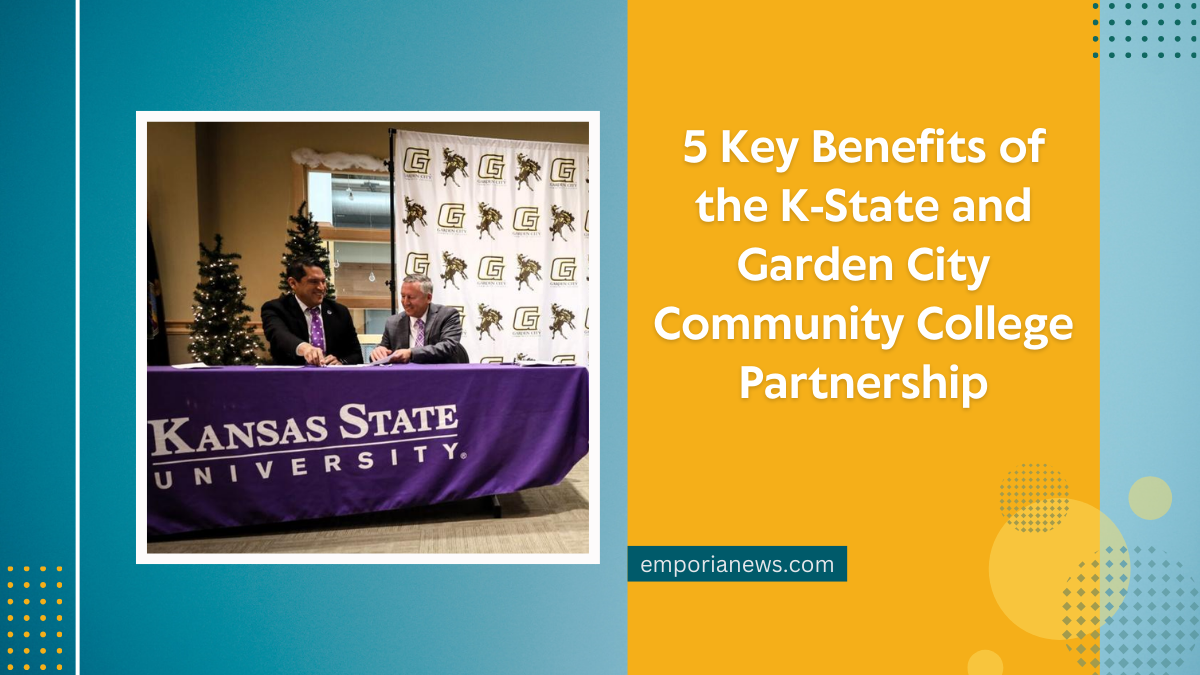In an effort to address the educational challenges in southwest Kansas, Kansas State University (K-State) and Garden City Community College (GCCC) have formed a strategic partnership to offer bachelor’s degree programs locally.
This initiative aims to provide students with the opportunity to complete their education without the need to relocate, thereby enhancing access to higher education in a region where only 17.9% of residents hold a four-year degree, compared to the state average of 33.9%.
Expanding Access to Higher Education
The collaboration between K-State and GCCC enables students to complete their first 60 to 75 credit hours at GCCC before finishing their bachelor’s degrees with K-State in Garden City.
This approach combines remote instruction with on-site lab experiences, offering flexibility and aligning with local workforce demands in fields such as agriculture, education, and health and human sciences.
Addressing Regional Workforce Needs
By tailoring programs to meet the specific needs of southwest Kansas, the partnership aims to develop a skilled workforce that supports local businesses and attracts new industries.
The initial focus will be on creating a new bachelor’s degree through K-State’s College of Agriculture, allowing students with an associate degree to specialize in areas like animal science, crop science, or agribusiness.
Community and Economic Development
Local leaders have praised the collaboration for its potential to elevate the region’s educational and economic landscape.
By providing advanced education directly to the community, the initiative is expected to enhance economic development, retain talent, and empower individuals to pursue rewarding careers without leaving the area.
| Institution | Program Focus | Credit Hours at GCCC | Credit Hours at K-State | Specialization Areas |
|---|---|---|---|---|
| K-State | Agriculture | 60-75 | Remaining for Bachelor’s | Animal Science, Crop Science, Agribusiness |
| GCCC | Associate Degrees | 60-75 | N/A | Various Fields |
| K-State | Education | 60-75 | Remaining for Bachelor’s | TBD |
| GCCC | Health Sciences | 60-75 | N/A | Various Fields |
Leadership Perspectives
K-State President Richard Linton emphasized the university’s commitment to making higher education accessible to all Kansans, stating that this partnership brings high-quality bachelor’s degree programs directly to students’ hometowns.
GCCC President Ryan Ruda highlighted the unique opportunity for students to advance their careers while staying rooted in their communities, thereby strengthening the entire southwest Kansas region.
Future Program Development
GCCC and K-State plan to launch a community survey to shape additional program offerings based on regional industry needs.
This responsive approach ensures that the educational programs developed will be relevant and beneficial to both students and the local economy.
In conclusion, the partnership between Kansas State University and Garden City Community College represents a significant step toward transforming the educational landscape of southwest Kansas.
By expanding access to bachelor’s degree programs and aligning them with local workforce needs, this initiative promises to foster community development, economic growth, and individual advancement.
FAQs
How can students enroll in these new bachelor’s degree programs?
Students interested in enrolling should begin by completing their initial 60 to 75 credit hours at Garden City Community College. Upon completion, they can transition to Kansas State University to finish their bachelor’s degree programs locally in Garden City.
What fields of study are initially available through this partnership?
The initial focus is on agriculture-related programs, with specializations in animal science, crop science, and agribusiness. Future programs in education and health and human sciences are planned based on community needs.
Will students need to relocate to complete their bachelor’s degrees?
No, students can complete their bachelor’s degrees without relocating. The programs combine remote instruction with on-site lab experiences in Garden City, providing flexibility and local access to higher education.
How will this partnership benefit the local community?
By expanding access to higher education, the partnership aims to develop a skilled workforce that supports local businesses, attracts new industries, and empowers individuals to pursue rewarding careers within the community.
When will these programs be available to students?
The partnership has been officially announced, and program development is underway. Interested students should contact GCCC or K-State for the most current information on program availability and enrollment timelines.




